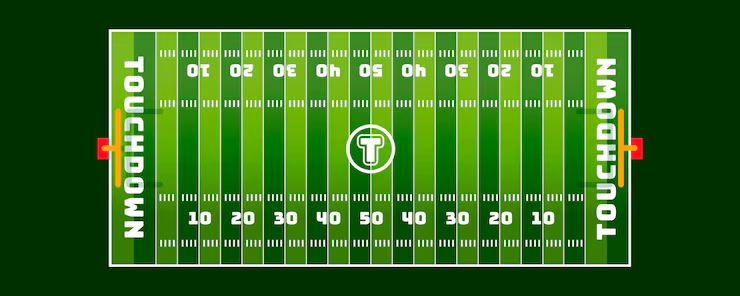
Few matchups in the NFL generate as much buzz as the high-stakes clash between the Houston Texans and Kansas City Chiefs. Known for thrilling plays, explosive offenses, and top-tier talent, this faceoff never fails to entertain. In this detailed article, we’ll explore the Texans vs Kansas City Chiefs match player stats, providing an in-depth breakdown of key performances and analyzing how each player’s contributions influenced the game.
If you’re a football fan, fantasy sports enthusiast, or just a curious reader, this comprehensive look at the Texans vs Kansas City Chiefs match player stats will give you everything you need to understand what truly happened on the field — beyond just the final score.
Game Overview: Texans vs Kansas City Chiefs Match Summary
The latest installment of the Texans vs Kansas City Chiefs rivalry was an electrifying contest packed with drama. Both teams entered the matchup with high expectations and playoff implications hanging in the balance. While the Chiefs were riding the momentum of an experienced roster and a Super Bowl-winning quarterback, the Texans came in with a young, promising team eager to prove they belong in the upper echelon of the AFC.
Final Score:
Kansas City Chiefs 34 – Houston Texans 27
But the real story goes beyond the scoreboard — it lies within the Texans vs Kansas City Chiefs match player stats that shaped every touchdown, turnover, and tactical decision.
Quarterbacks: The Commanders on the Field
Kansas City Chiefs Quarterback Stats
Patrick Mahomes once again proved why he is one of the league’s elite quarterbacks. His stats from the Texans vs Kansas City Chiefs match were nothing short of spectacular:
- Completions/Attempts: 31/42
- Passing Yards: 348 yards
- Touchdowns: 4
- Interceptions: 1
- QBR: 104.2
Mahomes delivered deep throws, converted third downs with ease, and extended plays with his mobility. His connection with tight end Travis Kelce and wide receiver Rashee Rice was evident throughout the game.
Houston Texans Quarterback Stats
On the other side, rookie sensation C.J. Stroud showed why he’s the future of the Texans. His performance in the Texans vs Kansas City Chiefs match player stats highlighted his poise and precision:
- Completions/Attempts: 27/39
- Passing Yards: 302 yards
- Touchdowns: 2
- Interceptions: 0
- QBR: 98.6
Stroud’s ability to read the defense and avoid costly turnovers was a major positive. Despite facing one of the NFL’s toughest defenses, he remained composed and nearly engineered a comeback in the fourth quarter.
Running Backs: Setting the Pace
Kansas City Chiefs Running Back Stats
Isiah Pacheco led the ground attack for the Chiefs and his numbers were impressive:
- Rushing Attempts: 19
- Rushing Yards: 92
- Touchdowns: 1
- Yards per Carry: 4.8
- Receiving Yards: 23
His balance of speed and power allowed the Chiefs to control time of possession and wear down the Texans’ defensive line.
Houston Texans Running Back Stats
Dameon Pierce had a solid showing, contributing to the Texans vs Kansas City Chiefs match player stats with both his rushing and receiving:
- Rushing Attempts: 17
- Rushing Yards: 85
- Touchdowns: 1
- Yards per Carry: 5.0
- Receiving Yards: 29
Pierce consistently broke through tackles and helped the Texans maintain offensive balance throughout the game.
Wide Receivers and Tight Ends: Air Attack Impact
Chiefs Receiving Stats
- Travis Kelce: 9 receptions, 108 yards, 2 touchdowns
- Rashee Rice: 6 receptions, 84 yards
- Marquez Valdes-Scantling: 3 receptions, 42 yards
Kelce remains the most reliable target for Mahomes, with his two red-zone scores being key in the final outcome. These stats were pivotal in the Texans vs Kansas City Chiefs match player stats.
Texans Receiving Stats
- Nico Collins: 8 receptions, 106 yards, 1 touchdown
- Tank Dell: 5 receptions, 74 yards
- Dalton Schultz (TE): 4 receptions, 37 yards
The Texans’ receiving corps was sharp, helping C.J. Stroud stretch the field and test the Chiefs’ secondary. Collins in particular had multiple crucial catches, adding to the intrigue of the Texans vs Kansas City Chiefs match player stats.
Defensive Highlights: Tackles, Turnovers & Disruption
Chiefs Defensive Stats
- Nick Bolton: 10 tackles, 1 sack
- Chris Jones: 2 sacks, 3 QB hits
- L’Jarius Sneed: 1 interception, 2 pass breakups
The Chiefs defense forced Stroud into multiple check-downs and pressured him frequently, although they failed to completely shut him down.
Texans Defensive Stats
- Will Anderson Jr.: 1.5 sacks, 7 pressures
- Jalen Pitre: 9 tackles, 1 fumble recovery
- Derek Stingley Jr.: 2 pass deflections
Despite the loss, the Texans defense had some bright moments and were crucial in keeping the game close — as reflected in the Texans vs Kansas City Chiefs match player stats.
Special Teams Performance
Chiefs Special Teams Stats
- Harrison Butker: 2-for-2 field goals (long of 47 yards), 4-for-4 extra points
- Tommy Townsend (Punter): 3 punts, 45.6-yard average
Texans Special Teams Stats
- Ka’imi Fairbairn: 2-for-2 field goals, 3-for-3 PATs
- Cameron Johnston (Punter): 4 punts, 47.3-yard average
Special teams were stable on both sides, with no missed kicks or major errors — though no standout returns altered the game’s momentum.
Penalties and Turnovers: Discipline and Mistakes
In close games, discipline and ball security often determine the outcome. The Texans vs Kansas City Chiefs match player stats reveal the following:
- Texans Penalties: 7 for 55 yards
- Chiefs Penalties: 5 for 40 yards
- Texans Turnovers: 0
- Chiefs Turnovers: 1 (Interception by Mahomes)
The Texans played a clean game with no turnovers, which kept them competitive despite facing a powerhouse like the Chiefs.
Coaching and Strategy
Coaching is not always captured in stats, but it plays a critical role in shaping the Texans vs Kansas City Chiefs match player stats.
- Andy Reid’s offense continued to impress with creative play-calling, balanced attack, and red-zone efficiency.
- DeMeco Ryans’ Texans showed resilience and strong adjustments, especially in the second half, which helped keep the game close.
The chess match between these two coaching staffs made this a must-watch for any football tactician.
Final Takeaways: Texans vs Kansas City Chiefs Match Player Stats Tell the Story
The game between the Texans and Kansas City Chiefs wasn’t just another regular-season matchup — it was a preview of what the future of the AFC might look like. With a seasoned star in Mahomes and an emerging leader in Stroud, this game showcased elite quarterback play, strong team strategies, and thrilling individual moments.
Top 3 Player Performances:
- Patrick Mahomes (Chiefs): 4 TDs, 348 yards
- Travis Kelce (Chiefs): 108 yards, 2 TDs
- C.J. Stroud (Texans): 302 yards, 2 TDs, 0 turnovers
The Texans vs Kansas City Chiefs match player stats will be studied by analysts, used by fantasy football managers, and remembered by fans as a benchmark for high-quality NFL competition.

Conclusion
If you’re looking to understand the real impact of each play, drive, and player, nothing tells the story better than the Texans vs Kansas City Chiefs match player stats. From quarterbacks to defensive stars, from special teams to coaching tactics, every number contributes to the bigger picture.
Whether you’re managing a fantasy football team or just love analyzing the game, make sure to bookmark this page for more detailed breakdowns and player stat reviews after every Texans or Chiefs game.





